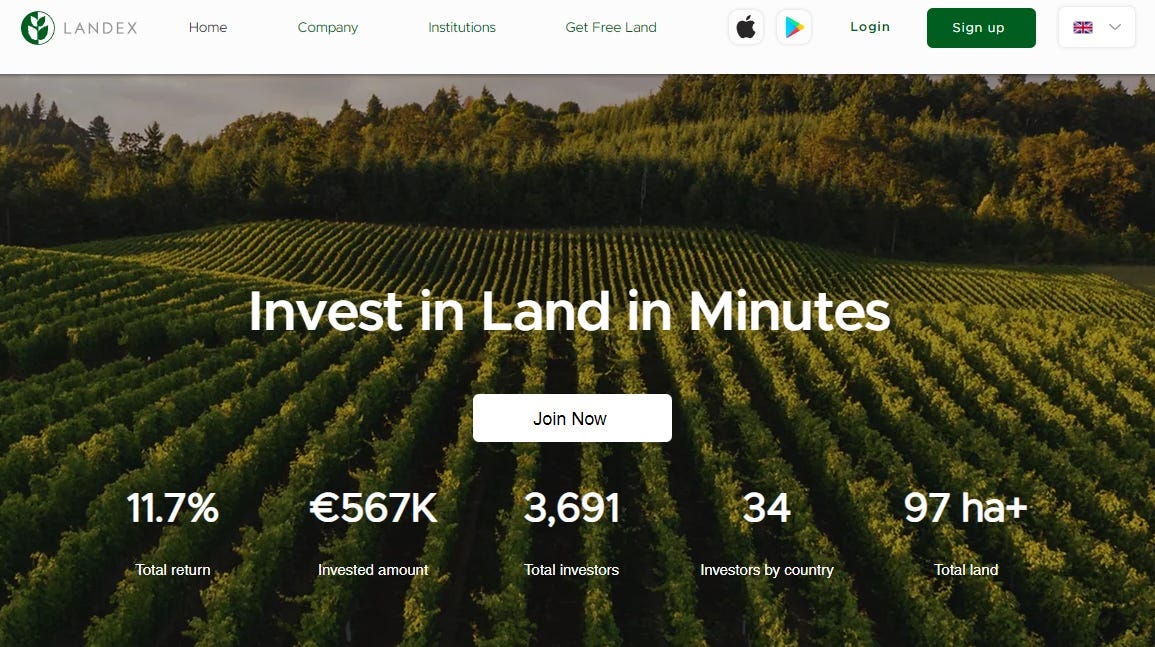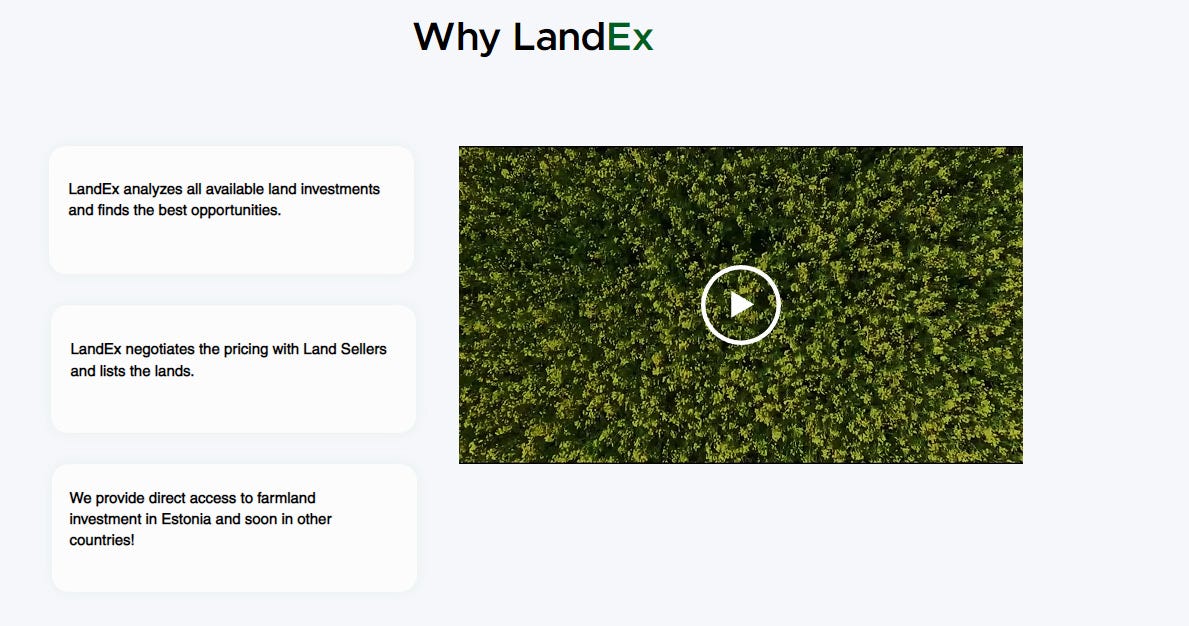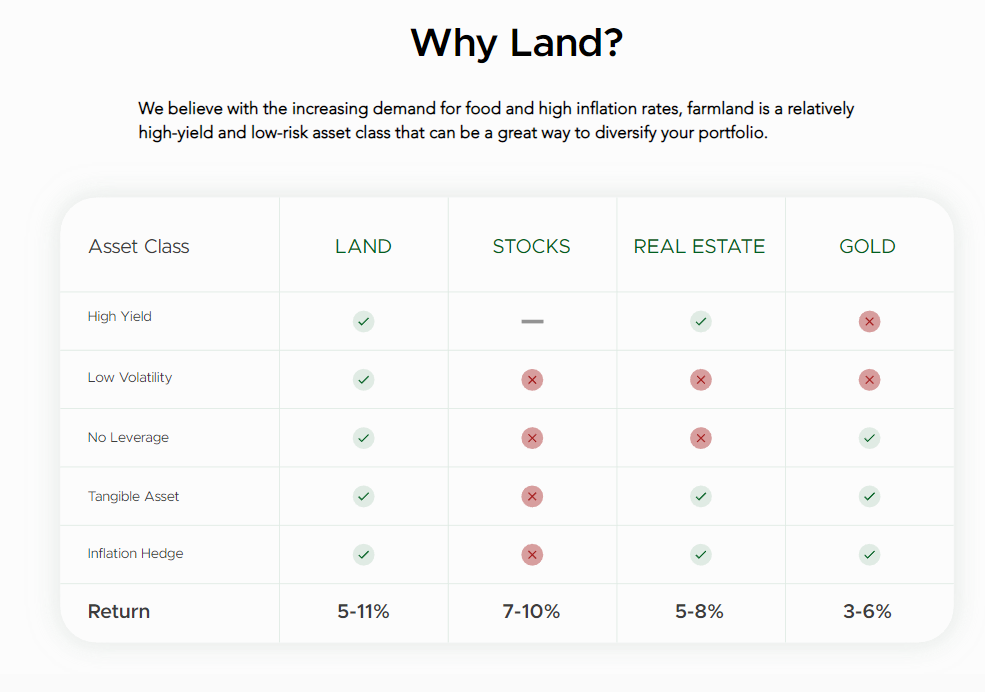LandEx vs FarmTogether: The Difference, Purpose, Returns & More
Comparison between two land investment platforms.
Overview:
LandEx and FarmTogether are both property crowdfunding platforms that specialize in land, which is also a form of a property. They provide direct access and help connect investors with land opportunities.
Property crowdfunding is a form of real estate and land investment that allows individuals to invest with small amounts of money. It works by pooling funds from multiple investors to finance a property development or renovation, then dividing the returns based on the amount invested. Property crowdfunding platforms such as LandEx and Farmtogether provide a platform for investors to browse and invest in various land projects and earn returns on their investment.
Both LandEx and FarmTogether aim to provide investors with unique investment opportunities that offer financial returns while also contributing to sustainable agriculture. Farmland is a stable investment that offers a steady income stream and potential capital appreciation. With both platforms, investors can access farmland investments that might otherwise be out of reach, while supporting sustainable farming practices that benefit the environment and local communities.
The purpose and country coverage of the platforms may differ a little bit but in terms of investment returns, both platforms generally offer higher returns than traditional savings accounts or bonds. Still investors should bear in mind the risks associated with land investments.
LandEx vs FarmTogether: Purpose
While both LandEx and FarmTogether provide opportunities for investors to participate in the farmland market, they have slightly different focuses and approaches.
LandEx allows the investor to invest in farm- and forestland, also known commonly as fractional investment and there is no chance of default. You will directly become a land owner.
Farmtogether also allows the investors to invest in farmland assets and own a fractional share of farmland.
LandEx vs FarmTogether: Investment Returns
One should consider the following factors when investing in land investments:
1. High Returns - land investments offer potentially high returns compared to other traditional investment options. Investors can earn interest rates of up to 12% or more on their investments. On LandEx, the land price can potentially even grow as much as 20% during the times of high inflation, so even starting with as little as 10€, it is a good long term investment.
2. Diversification - investing in land loans provides diversification to an investment portfolio. It provides an opportunity for investors to spread their investments across different types of lands and across different geographies, thereby minimizing risks.
3. Collateralised Investment - investing in both land loans is typically secured by collateral – land. This helps to minimize risks and add a layer of security to the investment.
4. Type of property - The type of land (property) you choose to invest in can also impact your investment returns. Agriculture land, for example, may generate income from rent, leasing, crops or livestock.
5. Passive Income - investing in land loans provides an opportunity for passive income. The investors can sit back and earn interest on their investments without being actively involved in the day-to-day management of the lands.
6. Ease of Investment - investing in land loans through online platforms like LandEx or FarmTogether is more accessible and convenient than investing in physical properties. Investors can choose to invest in multiple properties with as little as 10€ (Landex) or 15000$ (FarmTogether), and the entire process can be completed online.
Landex vs FarmTogether: Country Coverage
Currently FarmTogether offers are in the United States, while LandEx operates in the EU. But you may still want to consider investing in both for diversification purposes as discussed above.
Verdict: Is LandEx Better Than FarmTogether?
Regarding the question, "Landex Better Than FarmTogether?" It depends on the individual's needs and preferences as both platforms offer very similar, yet slightly different services but both are good alternatives to riskier investments such as the stock market.






